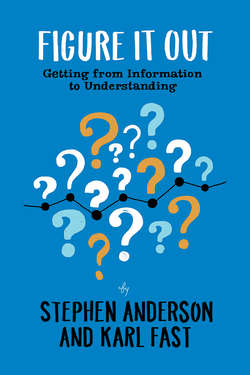Читать книгу Figure It Out - Stephen P. Anderson - Страница 56
На сайте Литреса книга снята с продажи.
Explanation #1: We Need Stories for Survival
ОглавлениеStories are a safe way to explore the dangers that might kill us.
The most popular hypothesis is that stories are—from an evolutionary biology perspective—vital to survival. Before the written word, we used myths, stories, and fables to contain simple ideas and warnings that should keep us safe, whether from physical harm or straying from a moral path. And before oral stories, it was the accumulation of certain kinds of narrative associations that quite literally kept us alive. Lisa Cron, author of Wired for Story, suggests that “Story was more crucial to our evolution than our opposable thumbs because all opposable thumbs did is let us hang on. It was story that told us what to hang on to.”16
What stories let us do—in a safe way—is to step out of our present circumstances and explore possible outcomes. For ancient ancestors on the savanna, this might have been a physical survival story about what happens when we eat this red berry or ignore that rustling in the bushes. The ability to pass on this cause-and-effect knowledge would quite literally have meant the difference between life and death. In modern times, these same underlying narrative patterns are now hardwired into our subconscious, but they are more likely to influence the ability to navigate social situations. Do I see myself as a victim of circumstances, or the hero facing adversity? Is someone out to get me? Will that leader save or betray me? Whether we are aware of it or not, we all create these narratives to make sense of present circumstances and to project possible outcomes. The problem is when these primitive narratives (“us vs. them,” “I have to get tough,” “it’s a conspiracy”) are misdirected and lead to faulty conclusions.
